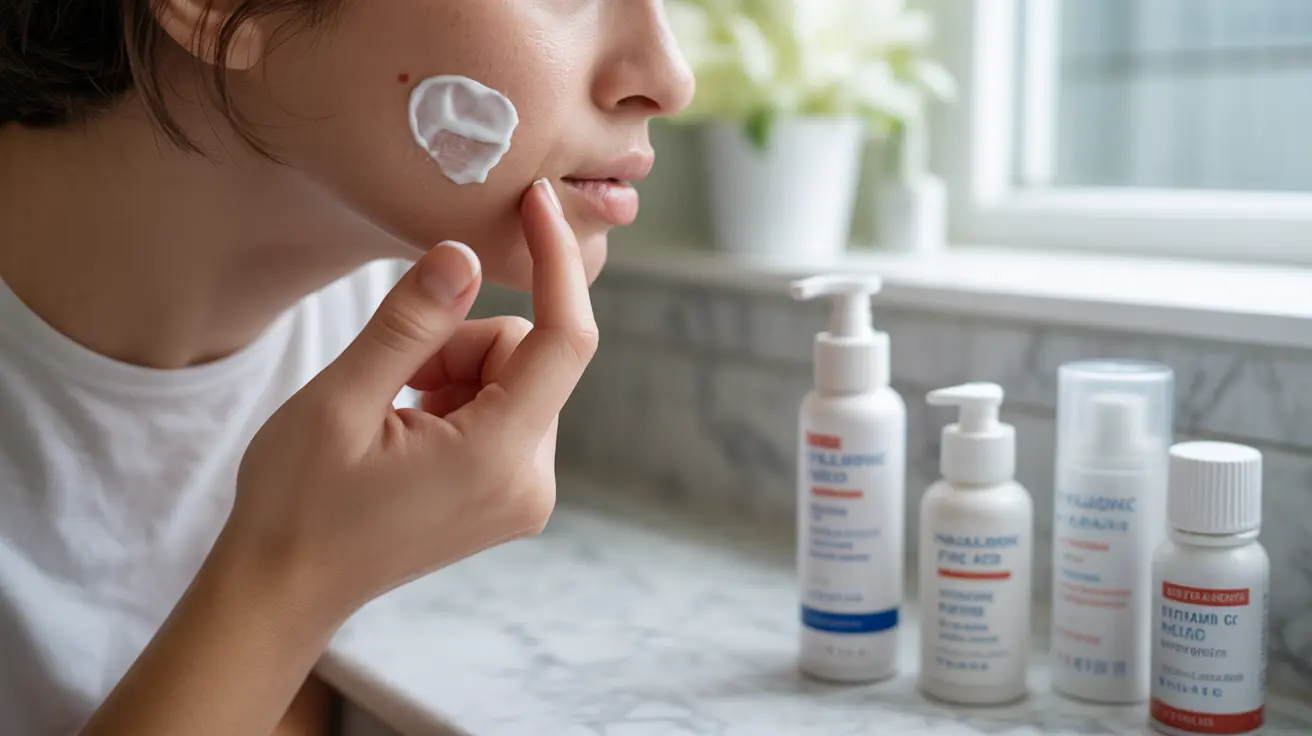When dealing with an unwanted pimple, many people reach for Neosporin as a quick fix, hoping it will speed up healing and reduce inflammation overnight. While this antibiotic ointment is excellent for minor cuts and scrapes, its effectiveness and safety for acne treatment require careful consideration.
Understanding whether Neosporin is appropriate for pimple treatment can help you make informed decisions about your skincare routine and prevent potential complications. Let's explore the facts about using Neosporin on acne and discover what research says about its effectiveness.
How Neosporin Works on Skin
Neosporin contains three primary antibiotics: bacitracin, neomycin, and polymyxin B. These ingredients work together to prevent bacterial infections in minor wounds by creating a protective barrier and killing harmful bacteria.
However, acne is primarily caused by a combination of factors including excess oil production, dead skin cells, and specific types of bacteria that differ from those targeted by Neosporin's antibiotics. This fundamental mismatch explains why Neosporin isn't typically recommended for acne treatment.
Potential Risks and Concerns
Contact Dermatitis
One significant risk of applying Neosporin to facial skin is the development of contact dermatitis. This allergic reaction can cause redness, itching, and additional inflammation – potentially making your skin concerns worse rather than better.
Antibiotic Resistance
Regular use of topical antibiotics like Neosporin can contribute to antibiotic resistance, making it harder to treat actual infections when necessary. This is particularly concerning when used frequently on acne-prone skin.
Better Alternatives for Overnight Acne Treatment
Over-the-Counter Options
Instead of Neosporin, consider these proven acne-fighting ingredients:
- Benzoyl peroxide (2.5-5%) for killing acne-causing bacteria
- Salicylic acid for unclogging pores
- Hydrocolloid patches for protecting popped pimples
- Tea tree oil for natural antibacterial properties
Proper Wound Care for Popped Pimples
If you've already popped a pimple (though it's best to avoid this), focus on proper wound healing:
- Clean the area gently with mild soap and water
- Apply a thin layer of petroleum jelly
- Cover with a hydrocolloid patch if needed
- Avoid touching or applying makeup to the area
When to See a Dermatologist
If you're consistently dealing with severe or persistent acne, it's time to consult a dermatologist. They can prescribe targeted treatments that are more effective than over-the-counter options, including:
- Topical retinoids
- Prescription-strength benzoyl peroxide
- Oral antibiotics when necessary
- Professional-grade chemical peels
Frequently Asked Questions
Does Neosporin help reduce pimples or clear acne overnight?
No, Neosporin is not designed for acne treatment and is unlikely to clear pimples overnight. The antibiotics in Neosporin don't specifically target acne-causing bacteria, making it ineffective for this purpose.
Can I use Neosporin on a popped pimple to prevent infection and promote healing?
While Neosporin can prevent infection in regular wounds, it's not the best choice for popped pimples. A better approach is using a hydrocolloid patch or simple petroleum jelly to protect the area and promote natural healing.
What are the risks or side effects of applying Neosporin on acne-prone skin?
Key risks include contact dermatitis, increased skin sensitivity, and potential antibiotic resistance. Some people may experience redness, irritation, or worsening of their acne condition.
What are better overnight treatments than Neosporin for pimples and acne?
Better alternatives include benzoyl peroxide, salicylic acid treatments, hydrocolloid patches, and spot treatments containing tea tree oil or niacinamide. These ingredients specifically target acne-causing factors.
Is it safe to use Neosporin regularly on the face for acne management?
No, regular use of Neosporin on the face for acne management is not recommended. It can lead to antibiotic resistance, skin sensitization, and may actually worsen acne over time. Stick to products specifically formulated for acne treatment.




